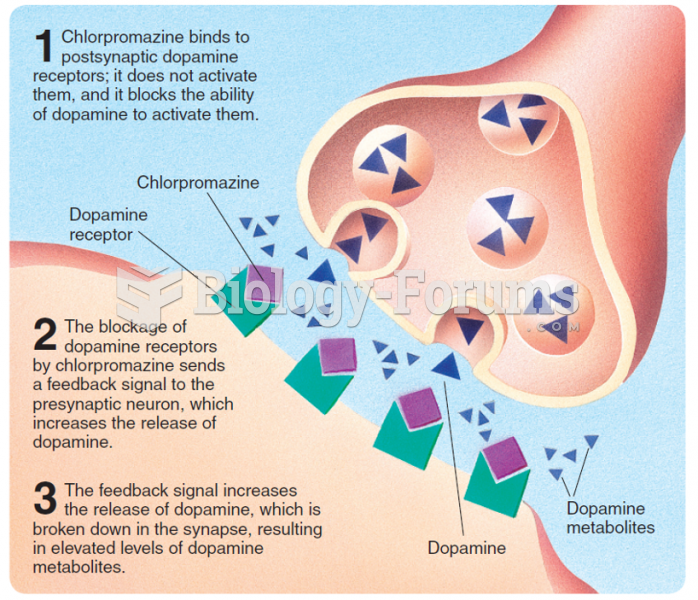Answer to Question 1
Correct Answer: 2
Rationale 1: Dopamine causes angina pain at low doses.
Rationale 2: High doses of dopamine stimulate beta-1 receptors, causing the heart to beat more rapidly, hence causing ventricular tachycardia.
Rationale 3: Dopamine has no effect on beta receptors in the lungs.
Rationale 4: Dopamine does not have an effect on the urinary bladder.
Global Rationale: High doses of dopamine stimulate beta-1 receptors, causing the heart to beat more rapidly, hence causing ventricular tachycardia. Dopamine causes angina pain at low doses. Dopamine has no effect on beta receptors in the lungs or the urinary bladder.
Answer to Question 2
Correct Answer: 1,4,5
Rationale 1: Caffeine-containing beverages should be avoided because they can cause excessive nervousness and tremors if taken with phenylephrine (Neo-Synephrine).
Rationale 2: Nasal sprays should not be used for more than three days. If needed for more than three days, the health care provider must be contacted.
Rationale 3: With nasal sprays, the container should not be used by more than one member of the family, in order to prevent spread of infection to the other members.
Rationale 4: Palpitations and nervousness are serious side effects of this drug and must be reported.
Rationale 5: Phenylephrine (Neo-Synephrine) cannot be used by a person with cardiovascular disease unless prescribed by the health care provider.
Global Rationale: Caffeine-containing beverages should be avoided because they can cause excessive nervousness and tremors if taken with phenylephrine (Neo-Synephrine). Palpitations and nervousness are serious side effects of this drug and must be reported. Phenylephrine (Neo-Synephrine) cannot be used by a person with cardiovascular disease unless prescribed by the health care provider. Nasal sprays should not be used for more than three days. If needed for more than three days, the health care provider must be contacted. With nasal sprays, the container should not be used by more than one member of the family, in order to prevent spread of infection to the other members.
 Risks of infectious disease increase in (a) high-density agricultural populations compared to (b) lo
Risks of infectious disease increase in (a) high-density agricultural populations compared to (b) lo
 Chlorpromazine is a receptor blocker at dopamine synapses. Chlorpromazine was the first receptor ...
Chlorpromazine is a receptor blocker at dopamine synapses. Chlorpromazine was the first receptor ...





